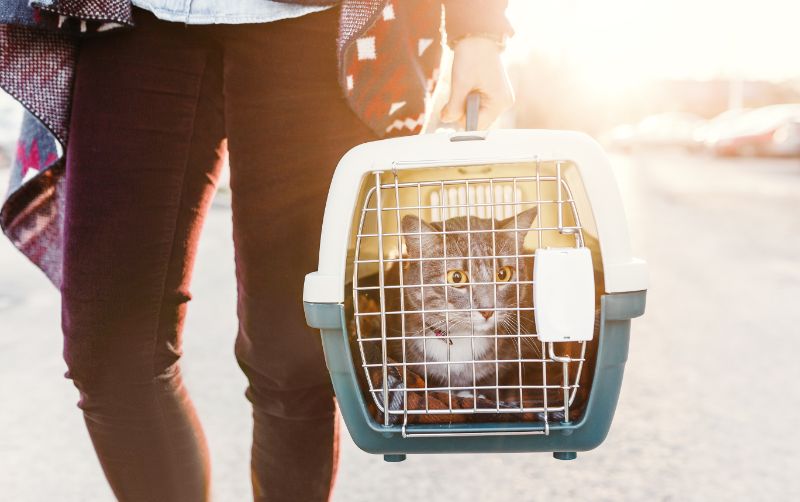Pet Safety During Fire Season

In the greater Denver area and across Colorado and the West, wildfires are a serious concern, especially during a dry year. While it’s easy to understand the danger wildfires pose to people, homes and property, have you ever considered how wildfires affect our pets? The team at Lone Tree Veterinary Medical Center is here with tips for pet safety during the wildfire season!
Wildfire Evacuations
Suffice it to say that evacuations don’t always occur at a time that’s convenient for us. That’s why it’s important to plan ahead and know how to care for your pet should the need arise.
- Plan for where your pet might go (human shelters usually don’t allow animals). Consider friends, family members, or a nearby pet boarding facility or animal shelter. We board dogs and cats.
- Prepare an evacuation kit for your pet, which should include food, water, bowls, carrier, leash, collar with current ID tags, toys, waste bags/litter box and litter, and any other daily needs. Also assemble and include a pet first aid kit.
- Make sure your pet’s records, including vaccinations and medications, are stored in one easy-to-access location; keep duplicates in your evacuation kit.
During an evacuation, always take your pets; do whatever you can to not leave them behind in your home, in a crate or tethered outdoors. If you have no choice (as with hiding cats), notify the local humane societies and emergency personnel as to where your pets are. Leave plenty of food and water. It’s also a good idea to place a “pet inside” sticker on front windows and doors.
The Damaging Effects of Smoke
Along with the threat of evacuation, comes the toxic smoke that can linger for weeks during and after a wildfire. Airborne particles from burning trees, tires, plastics, paint, insulation, and other noxious substances can cause health problems for both pets and people.
Signs of smoke inhalation in pets include:
- Coughing, wheezing
- Sneezing
- Nasal discharge
- Redness of the eyes, inflammation
- Chewing or licking at skin or paws
- Eye discharge
- Difficulty breathing
- Lethargy
Ongoing smoke inhalation can damage a pet’s lungs and airways, causing long-term respiratory illness. If you live in an area where smoke from a fire has settled, protect your pets by keeping them inside in a ventilated area. Use fans and air filters to help keep indoor air circulating and to dissipate any smoke that is present. If the smoke is especially heavy, you might consider leaving the area until the smoke clears.
Pet Safety During Fire Season
During the wildfire season, we recommend staying on top of wildfire alerts and being prepared to act quickly in a way that accounts for your pet’s safety. If you believe your pet is suffering from the effects of smoke, make sure it is seen by a veterinarian as soon as possible.
If you have any questions about pet safety during the wildfire season, please don’t hesitate to contact us. We’re always here to help!



